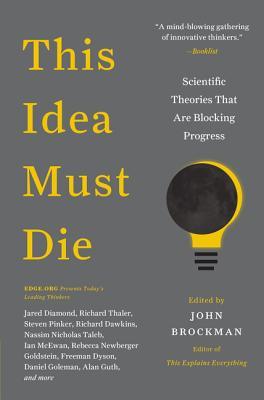Jay Rosen: Information Overload
Filters in a digital world work not by removing what is filtered out; they simply don't select for it. The unselected material is still there, ready to be let through by someone else's filter. Intelligent filters, which is what we need, come in three kinds:
- A smart person who takes in a lot and tells you what you need to know. The ancient term for this is "editor." The front page of the New York Times still works this way.
- An algorithm that sifts through the choices other smart people have made, ranks them, and presents you with the top results. That's how Google works— more or less.
- A machine learning system that over time gets to know your interests and priorities and filters the world for you in a smarter and smarter way. Amazon uses systems like that.
Here's the best definition of information that I know of: information is a measure of uncertainty reduced. It's deceptively simple. In order to have information, you need two things: an uncertainty that matters to us (we're having a picnic tomorrow, will it rain?) and something that resolves it (weather report.) But some reports create the uncertainty that is later to be solved.
Notes:
Folksonomies: information information overload filtering
Taxonomies:
/home and garden/gardening and landscaping/yard and patio (0.577626)
/technology and computing (0.528271)
/science/weather (0.479899)
Keywords:
digital world work (0.949754 (negative:-0.244860)), New York Times (0.869213 (positive:0.328615)), Jay Rosen (0.715991 (neutral:0.000000)), Intelligent filters (0.709065 (positive:0.605089)), Information Overload (0.686940 (negative:-0.244860)), unselected material (0.686218 (negative:-0.339893)), smart person (0.675360 (positive:0.789120)), ancient term (0.641967 (neutral:0.000000)), smart people (0.630616 (positive:0.688233)), Google works— (0.625899 (negative:-0.361450)), weather report (0.595080 (negative:-0.265998)), best definition (0.594827 (positive:0.549048)), uncertainty (0.522785 (positive:0.334767)), priorities (0.295849 (positive:0.947174)), picnic (0.291439 (positive:0.246468)), Amazon (0.288796 (positive:0.607748)), choices (0.288730 (positive:0.688233)), kinds (0.287454 (neutral:0.000000)), algorithm (0.284468 (positive:0.688233)), measure (0.280268 (neutral:0.000000)), editor (0.278620 (neutral:0.000000)), page (0.275429 (positive:0.328615)), systems (0.274523 (positive:0.607748)), results (0.273727 (positive:0.557224)), reports (0.273464 (positive:0.262283)), machine (0.272217 (positive:0.947174)), interests (0.271875 (positive:0.947174))
Entities:
Jay Rosen:Person (0.788169 (neutral:0.000000)), editor:JobTitle (0.698727 (neutral:0.000000)), New York Times:PrintMedia (0.636802 (positive:0.328615)), Google:Company (0.591734 (negative:-0.361450)), Amazon:Company (0.557061 (positive:0.607748))
Concepts:
Filter (0.946878): dbpedia
Need to know (0.931446): dbpedia | freebase | yago
Filters (0.790393): dbpedia
Learning (0.758299): dbpedia | freebase | opencyc
The New York Times (0.709102): website | dbpedia | freebase | yago
Algorithm (0.657402): dbpedia | freebase | opencyc
Jay Rosen (0.643678): dbpedia | freebase | yago
World (0.640885): dbpedia | ciaFactbook | freebase





